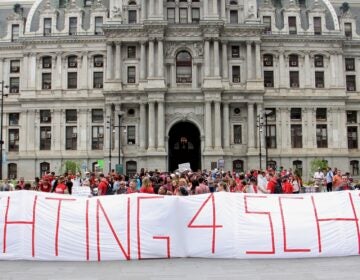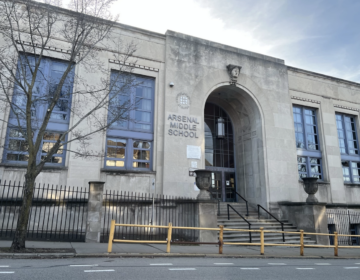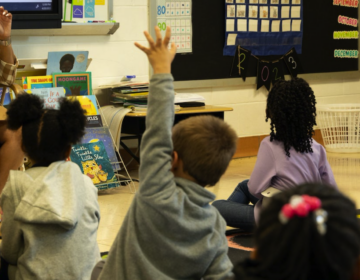Could ‘community school’ concept work in Philadelphia?
In Philadelphia, 40 percent of school-aged kids live in poverty.
One in five students has had some contact with the Department of Human Services
The rate of chlamydia and gonorrhea among Philadelphia’s 15- to 19-year-olds is three times the national average.
In an effort to help city children achieve academically despite socioeconomic and cultural trappings, City Council has started examining the idea of turning schools into social-service hubs.
On Wednesday, Council held its first hearing on the possibility of creating “school-based family service centers,” commonly known as “community schools.”
“Why should everybody have to come down to the Municipal Services Building and City Hall to get the appropriate services?” said Council President Darrell Clarke. “There’s a school in every neighborhood in Philadelphia, why don’t we take every school … figure out a way to have the appropriate services, not just for the children, but actually for the family?”
Clarke said the city’s most disadvantaged students will only grow academically if their basic human needs are taken care of first.
With the backing of a half-dozen of his Council colleagues, Clarke laid out a vision of schools as community centers where kids and families can receive health care, psychological counseling, employment training and referrals to other public assistance programs.
“Guess what?” said Clarke, “If people get more engaged with their schools, they’re going to care more about their school, and I think that it will ultimately improve the educational opportunity for that young person.”
According to a City Council report, the centers would be located “in or near schools” and would host a “multidisciplinary team of providers,” including social workers, alcohol and drug counselors, and other health professionals.
The centers would also provide tax education, GED preparation and college readiness programs for the adults in students’ families.
By implementing the community school model, City Council expects students’ lives to improve across the board. It expects vaccination rates to go up, nutrition to improve, GPAs and graduation rates to rise, and school absences to decline.
Council heard support from diverse corners at Wednesday’s hearing, including testimony from the Philadelphia Federation of Teachers, the Children’s Hospital of Philadelphia and Boys Latin Charter School.
The community school model’s potential success would require the cooperation and coordination of a vast array of government agencies including the Department of Human Services, the State Department of Health, the Philadelphia Housing Authority and Family Court.
If nothing else, Clarke says coordination could help
Clarke admitted that a lack of resources would make it unlikely that this initiative could be implemented citywide, but said much could be done just by getting existing service providers to coordinate better.
“Right now, we’re spending approximately $131 million contracting with organizations that provide support for those same children,” he said, “just outside the school boundaries.”
Clarke also floated the idea of funding these community centers with a portion of the revenue that the city contributes to public education.
That initiated a tense volley with Karyn Lynch, the school district’s chief of student services.
“Maybe we need to look at some of the same money that’s currently available and reprioritize that money and spend it in a different way,” said Clarke, before posing to Lynch, “What’s your thought on that?”
Testifying before a panel of Council members, Lynch’s eyes tightened.
“Dr. Hite would certainly not be pleased if I … encouraged City Council to redirect any of the dollars that are coming to the school district,” said Lynch, then changing her tone, “but, if there were new dollars … that might be a different conversation.”
Clarke told Lynch he’d like to see a city-sponsored fiscal oversight board created to keep tabs on the district’s books. He also said he supports the call of State Rep. Angel Cruz, D-Philadelphia, for an audit of the district’s finances.
“There is some significant concerns about how you all spend your money,” said Clarke. “You don’t nearly have enough money … but the money that you have, the question is: Is it being spent in the appropriate way to maximize opportunities for young people?”
(State Auditor General Eugene DePasquale is currently auditing the school district).
“It would be like taking from Peter to pay Paul,” said Lynch. “The superintendent is more than willing to be open and clear about how dollars are spent within the school district, and on what, and based on which priorities.”
Of 217 district-run Philadelphia public schools, Lynch said two have implemented a variation of the community school model.
WHYY is your source for fact-based, in-depth journalism and information. As a nonprofit organization, we rely on financial support from readers like you. Please give today.





